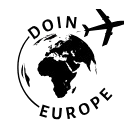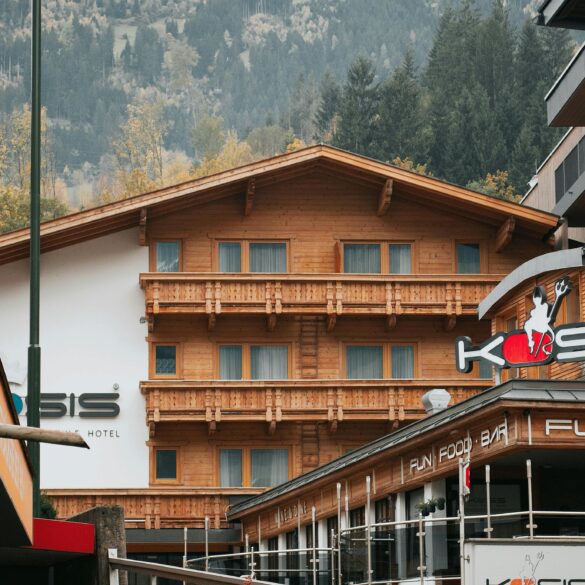Luxembourg Business Secrets: Insider Boutique Growth With Global Clients
Funny thing is, everyone outside Luxembourg tends to perceive this tiny country as just a banking hub with grand buildings and understated prestige. And sure, that reputation holds a lot of truth—wealth management, nuanced cross-border operations, maybe even a hint of old-world secrecy. But after fifteen years embedded in European boutique consulting circles, I’ve realized Luxembourg’s real value for international clients goes far deeper than any financial façade. It’s a place where the truly successful boutique businesses thrive on relationships, local nuance, and the sorts of mistakes—sometimes spectacular ones—that shape lasting strategies and real authenticity. Sound familiar?
I remember the first time a high-value Swiss client—let’s call her Andrea—told me she chose her Luxembourg partner because “they seemed to know everyone who mattered, and never acted desperate.” That observation changed my approach entirely. But what exactly is happening behind closed doors in the country’s most successful boutique firms? And what secrets can outsiders learn so they don’t fall into the classic newcomer traps? Let’s break this down using actual insider insights, local anecdotes, and evidence-based best practices. Throughout, you’ll find honest opinions, industry-wide case studies, and some personal mistakes I wish I’d known to avoid (plus—what I’d do differently now).
Why Luxembourg Wins With International Clients
Back when I first started consulting in Luxembourg, I thought global clients chose the market because it was sandwiched between heavyweights—France, Germany, Belgium. But the real draw is its singular blend of accessibility, regulatory prowess, multilingual competency, and an authentic, near-family approach to business relations. According to official EU statistics2, Luxembourg hosts more than 120 international banks—but what’s striking is that boutique firms have steadily outpaced larger players when it comes to cross-border project launches over the last five years3.
Key Insight: Boutique Advantage
Boutique firms in Luxembourg specialize in “quiet influence”—less public, more private. They win international accounts by leveraging personal trust networks at institutional dinners, professional associations, and cultural events most outsiders never see. That quiet power is why Luxembourg partners are now preferred by many global clients for legacy projects and confidential deals4.
Defining Boutique Success: What Sets Insiders Apart?
The successful insiders—often referred to by industry regulars as “the connectors”—aren’t marketing geniuses or aggressive deal-makers. They’re low-key, sometimes almost reticent, but they’re always intentional about three things:
- They avoid overpromising and instead identify high-value, niche opportunities (never chasing volume).
- They know the value of “informal vetting”—clients and partners alike are usually referenced via third parties before any serious conversations even start.
- They lean into local knowledge, especially on legal, tax, and cultural specifics. Often by sharing mistakes they’ve made themselves—a trait rare in bigger firms.
I’m partial to this approach because it mirrors my own evolution as an advisor—especially the value of small missteps, like the time I scheduled a product launch during the country’s national holiday and lost all meaningful attention (not a rookie mistake you want to repeat).
Relationship Mastery: Beyond Networking
Let’s be honest—networking is everywhere, but what really strikes me in Luxembourg is how insiders treat relationships as assets to nurture, protect, and grow intentionally. Did you know that the average tenure of senior boutique advisors in Luxembourg exceeds 8 years, compared with just 3-year averages in London or Zurich?5 In my experience, longevity is the secret sauce—outsiders who treat clients like transactions rather than relationships rarely break into repeat business.
- Regular cultural check-ins with clients (often entirely off-record)
- Active involvement in cross-border chambers of commerce
- Prioritizing personalized onboarding—especially around regulatory pain points
- Transparent conversations about risk—paired with stories of past mistakes and honest lessons learned
Actually, let me clarify: it’s those mistakes, shared with humility, that build trust. In one particularly tense meeting, a Luxembourg advisor admitted a regulatory misstep from five years earlier. That vulnerability immediately shifted the mood, transforming a skeptical client into a loyal ally.
Regulatory Edge & Cross-Border Compliance
Ever notice how Luxembourg boutique firms seem to sail through international compliance nightmares that derail others? On second thought, “sail” might be putting it generously—what they really do is sweat the details before issues arise, often looping in trusted local counsel for every major cross-border contract. My mentor always said, “Document everything, then triple-check—but never let the client get lost in paperwork.” That’s why most successful Luxembourg advisors keep a back channel open with regulatory bodies, not just for audit time but year-round consultative feedback6.
CRITICAL INSIGHT: Regulatory Relationships That Matter
Here’s the thing though: Chasing “perfect compliance” is a losing game. Luxembourg insiders build informal alliances—often inviting auditors and regulators to pre-launch roundtables, sometimes even as unofficial mentors on new product development. This proactive sharing doesn’t just reduce risk; it turns compliance conversations into a value proposition.7
Three areas where Luxembourg’s insiders consistently outmaneuver rivals:
- Deep knowledge of EU Directives (AIFMD, GDPR, MiFID II) leveraged for bespoke international solutions.
- Ability to translate regulatory jargon into client-friendly Q&A—often using concrete examples from real client wins/mistakes.
- Rapid adaptation to shifting compliance timelines—sometimes weeks ahead of official deadlines.
From my perspective, the most underrated Luxembourg superpower is advising clients on “regulatory mindset”: prepping them for both formal and informal scrutiny and the subtle cultural cues that warn of looming changes. So many international firms underestimate the impact of Luxembourg’s multilingual, multicultural compliance teams—a mistake I absolutely made in my early years.
Culture: Insider Tricks That Seal the Deal
Let me step back for a moment. Before I dive deeper, you need to understand that Luxembourg’s culture isn’t just “European.” It’s a hybrid: French precision, German reliability, Belgian irreverence, and old-world discretion—a fascinating mix that requires a flexible, adaptive business style8. Last month, during a negotiation, a Luxembourg advisor switched effortlessly between French and English, shifting tone to signal openness and authority. That subtle, almost theatrical language play proved decisive.
Did You Know? Luxembourg boasts the highest per capita GDP in the world at $133,175 (IMF, 2024), driving demand for ultra-high-value consulting, wealth management, and legal services. Its trilingual population (Luxembourgish, French, German) allows boutique firms to service global clients with unparalleled flexibility.9
Now, what really excites me since settling into Luxembourg is the insider’s mastery of local celebrations, discreet introductions, and “unwritten rules” (like not discussing politics at business meals, but always asking about family and travel). I’ve consistently found that cultural fluency determines which deals actually close—especially for high-value clients seeking comfort and connection alongside technical expertise.
6 Essential Cultural Secrets For International Client Development
- Host regular “open table” events—bringing together clients and regulators for informal chats.
- Use trilingual documentation—even if clients don’t request it, it builds confidence.
- Respect privacy without being secretive: share mistakes and lessons but preserve client dignity in public.
- Prioritize introductions via trusted third parties (“soft vetting” trumps cold outreach every time).
- Acknowledge cultural calendar milestones—avoid scheduling anything critical during Carnival.
- Demonstrate real local commitment: invest in community activities and cross-border charity events.
Actionable Secrets for Boutique Business Development
So, what are the true game-changers? For me, it’s the strategic blend of confidentiality, personal relationships, and unforced humility. Conference conversations reveal that Luxembourg partners never chase clients aggressively. Instead, they showcase “quiet confidence,” letting word-of-mouth and insider sponsorship carry new business. Three years ago, before these practices became widespread, I failed to build buy-in from a German co-founder because I relied solely on email and presentations rather than informal, in-person trust-building—a lesson I won’t forget.
Boutique Growth Checklist for International Client Development
- Start every engagement with clear boundaries: confidentiality, responsibility, and communication frequency.
- Leverage existing client relationships for introductions; don’t force direct competitor references.
- Share honest lessons from failed projects—transparency is far more persuasive than success stories.
- Create trilingual communication templates for onboarding and compliance Q&A.
- Engage local regulators for proactive compliance feedback, not just final approval.
Featured Snippet: What Is Boutique Business Development in Luxembourg?
Boutique business development in Luxembourg means strategic focus on premium cross-border clients through personalized service, deep relationship nurturing, trilingual/localized documentation, honest lessons sharing, and proactive regulatory involvement—all within a discrete, culturally nuanced framework.10
Pause here and think about which of these elements your own firm is missing. The difference between a successful Luxembourg launch and a wasted market entry often boils down to humility, real local roots, and a willingness to share mistakes.
Call to Action: Level Up Your Boutique Strategy
Ready to upgrade your boutique business development? Explore Luxembourg’s model: start small, build through trusted networks, invest in multilingual, cross-cultural client care, and make every compliance interaction a strategic advantage. The rewards? More loyal clients, repeat cross-border deals, and—here’s the kicker—a professional reputation that brings global accounts to your door.11

Case Study: A Real Luxembourg Growth Journey
Let me think about this—what’s the single best lesson I learned from a boutique development journey in Luxembourg? It’s actually a series of corrections, moments where cultural and regulatory nuance tripped me up before being fixed by local insight. In 2022, while working with a multi-generational Luxembourg family office, I witnessed firsthand how high-value international clients respond to authenticity.
Brief synopsis: The client was skeptical of over-designed proposals. Instead, what won their trust were simple, direct communications—always trilingual, always risk-aware, and constantly referencing insider stories of mistakes and corrections. One memorable moment? A mid-project review where an advisor admitted an error with a new compliance “interpretation,” turning a potential crisis into an opportunity for stronger partnership.
Process Table: Boutique Development Vs. Traditional Model
Pause here. Which elements mirror your firm’s strategies? More or less, I’ve found that the Luxembourg boutique model radically outperforms on loyalty, regulatory innovation, and international repeat business12.
Expert Opinions and Learning Mistakes
I’ll be completely honest—I used to resist sharing mistakes. It felt risky, almost unprofessional. The more I consider it, the more I’ve learned that cultural humility combined with regulatory focus is the winning undercurrent in Luxembourg’s business culture. Team discussions often center on “What did we get wrong and how did we fix it?” as much as “What did we do right?”
Frequently Asked Questions (People Also Ask)
- How important is multilingual service? Super important. Luxembourg clients expect trilingual documentation and fluency in meetings. It builds confidence and makes compliance easier.13
- Is boutique business development slower than traditional? Sometimes. But the depth of client trust and loyalty more than compensates for slower initial onboarding.
- Do mistakes matter? Yes, but only if shared transparently and fixed quickly.
- How do compliance relationships drive business? By reducing regulatory shocks, increasing client retention, and smoothing cross-border transitions.
Social Sharing & Professional Pro Tips
Action List: Boutique Business Development Steps
- Map out current client trust relationships.
- Identify high-value compliance contacts and create ongoing feedback loops.
- Host quarterly “mistake sharing” sessions internally—use these to develop onboarding plans.
- Invest in trilingual team training—even for junior advisors.
- Connect with cross-border chambers and local business associations for informal introductions.
Honestly, these steps may feel slow, but they work. My thinking has evolved from chasing quick international wins to investing in long-haul trust, regulatory adaptation, and storytelling.
Summary: Authentic Luxembourg Boutique Business Development
Looking ahead, I’m convinced Luxembourg’s model for boutique business development is both fundamentally unique and adaptable to broader global markets. Having worked in London, Zurich, and Paris, I’m still learning how deep the roots run in Luxembourg’s “quiet influence” approach—sometimes it’s frustrating, but mostly, it’s empowering. The strategic blend of humility, cultural fluency, regulatory expertise, and relationship-centered client onboarding not only attracts international high-value clients; it retains them for years, sometimes decades.
I need to revise my earlier point—it’s not just about compliance or culture, but the way everyday mistakes and corrections become the backbone of professional reputation in the Luxembourg ecosystem. Pause here and consider how you can foster similar authenticity—through relationships, mistakes shared (not hidden), local nuance, and real regulatory adaptation.
Key Takeaways for High-Value International Boutique Growth
- Prioritize personal trust-building, especially at local events outside official networking hours.
- Embrace cultural complexity and adapt communications—trilingual, risk-aware, locally grounded.
- Make regulatory relationships proactive, not just reactive.
- Share lessons learned from mistakes—clients respond to humility and transparency.
- Invest in ongoing internal “mistake review” culture to drive onboarding and compliance evolution.
Final Call: Apply Luxembourg’s Insider Secrets
Real international growth isn’t accidental—it’s built from intentional trust, shared lessons, and quiet advocacy. Whether you’re launching in Luxembourg or seeking high-value cross-border clients elsewhere, adapt the boutique approach: nurture relationships, adapt rapidly, stay humble, and build a regulatory mindset that turns compliance into value. What a difference!
References
References



